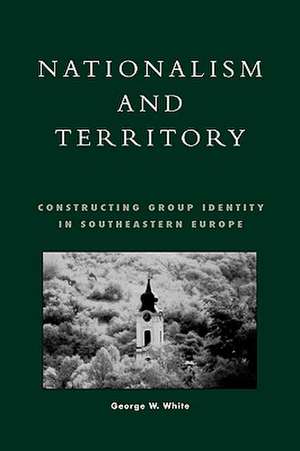Nationalism and Territory: Geographical Perspectives on the Human Past
Autor George W. Whiteen Limba Engleză Paperback – 21 mar 2000
Preț: 479.68 lei
Nou
Puncte Express: 720
Preț estimativ în valută:
91.80€ • 95.11$ • 76.61£
91.80€ • 95.11$ • 76.61£
Carte tipărită la comandă
Livrare economică 21 martie-04 aprilie
Preluare comenzi: 021 569.72.76
Specificații
ISBN-13: 9780847698097
ISBN-10: 0847698092
Pagini: 328
Dimensiuni: 149 x 227 x 20 mm
Greutate: 0.4 kg
Ediția:0328
Editura: Rowman & Littlefield
Seria Geographical Perspectives on the Human Past
ISBN-10: 0847698092
Pagini: 328
Dimensiuni: 149 x 227 x 20 mm
Greutate: 0.4 kg
Ediția:0328
Editura: Rowman & Littlefield
Seria Geographical Perspectives on the Human Past
Notă biografică
Cuprins
Chapter 1 List of Figures Chapter 2 Acknowledgments Chapter 3 Place Name Terminology Chapter 4 1. Introduction Chapter 5 2. The Nation in its Spatial Context Chapter 6 3. Southeastern European Nationalism in its Temporal and Spatial Context Chapter 7 4. Hungary and the Hungarians Chapter 8 5. Romania and the Romanians Chapter 9 6. Serbia and the Serbs Chapter 10 7. Conclusion Chapter 11 Selected Bibliography Chapter 12 Index Chapter 13 About the Author
Descriere
Why do nations come into conflict? This text offers answers to such questions by exploring how national identity is shaped by place. Focusing on Serbia, Hungary and Romania, it moves beyond studies of nationalism to show that the very core of national identity is bound to specific places.


















